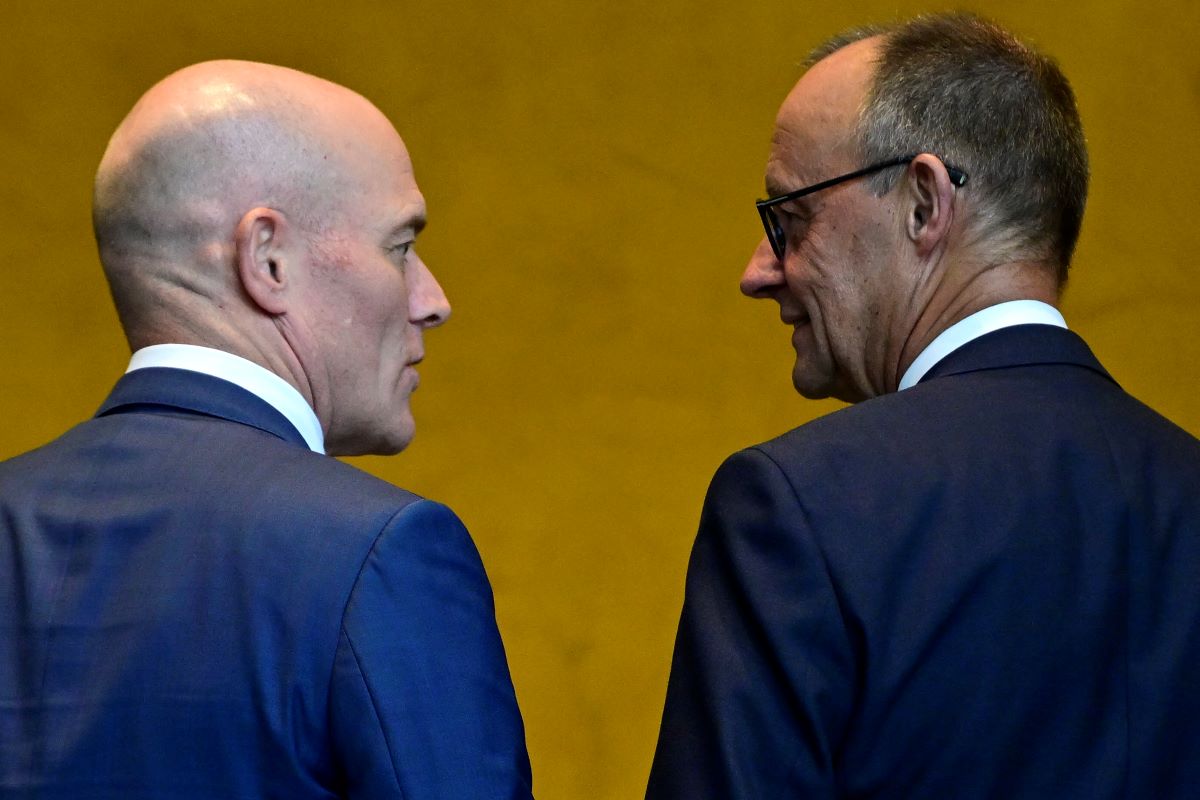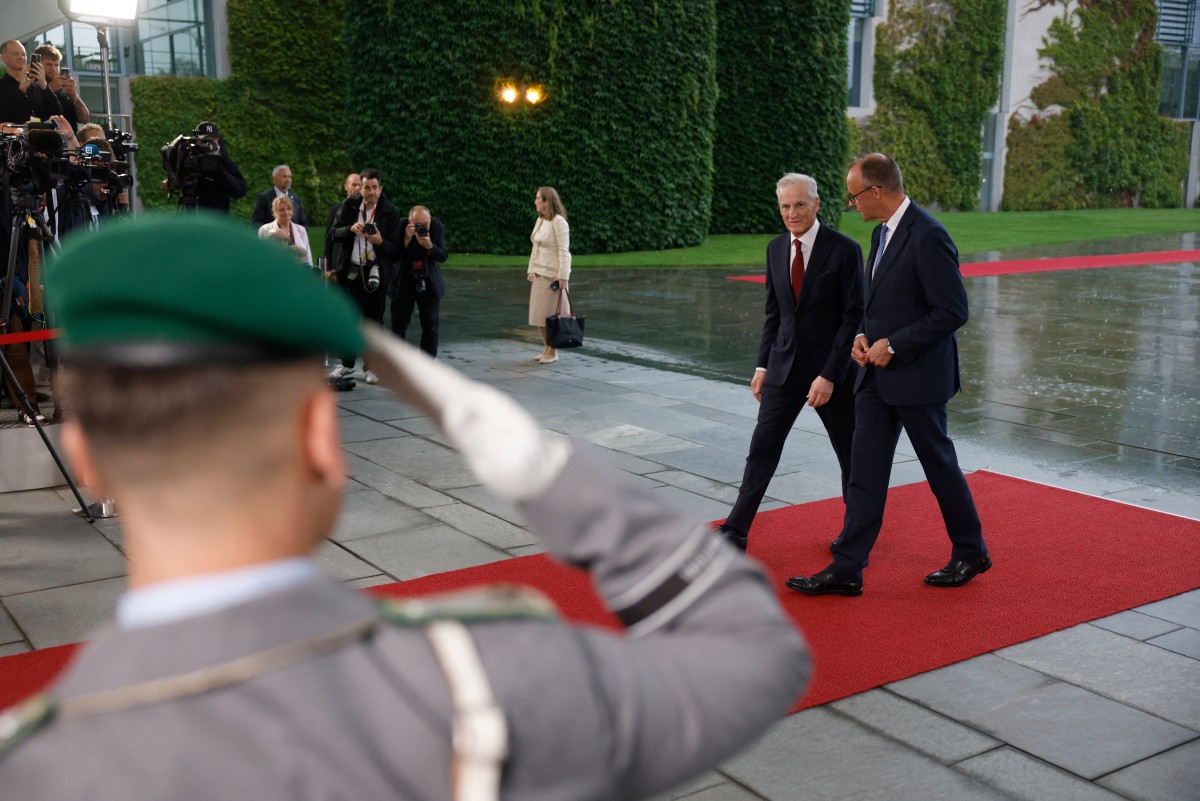Tuesday's top story: German industry alliance lays out domestic investment push
More than 60 German companies said Monday they would fund new domestic investments worth at least €100 billion each as Chancellor Friedrich Merz moves to revive Europe's largest economy.
Members of the "Made for Germany" initiative said in a statement they would invest a total of 631 billion euros in Germany by 2028.
The amount included investments already planned as well as new spending, they said.
The pledge was intended as a "strong endorsement of Germany’s potential" following recent investment outflows worth hundreds of billions of euros, the signatories said.
The initiative was being led by executives from Germany's blue-chip companies, including lender Deutsche Bank and industrial group Siemens.
The CEOs of the two German heavyweights were received in the chancellery in Berlin by Merz, who declared that "the message is very clear... it is worth investing in Germany again".

Merz's government, which came to office in May with a pledge to revitalise Germany's struggling economy and boost investment, has already approved a sweeping package of corporate tax breaks and loosened constitutional spending limits to plough hundreds of billions into defence and infrastructure.
READ ALSO: What's in Germany's giant spending package?
Severe weather warnings lifted in Berlin and Brandenburg
Despite severe weather warnings, the night in Berlin and the surrounding areas passed without many incidents.
The German weather service (DWD) had warned of severe weather with heavy rainfall in large parts of eastern Germany on Monday.
At the height of the heavy rain, there were 24 weather-related operations, a spokesman for the Berlin fire department told Tagesspiegel on Monday evening, adding, "That's not a big number".
A concert by pop superstar Robbie Williams was postponed to Wednesday as a precaution, and an open air performance by opera singer Anna Nebtrenko was also cancelled.
Weather in the region is expected to remain wet and windy until Wednesday.
Food inspectors in Baden-Württemberg find thousands of violations
A total of 956 business closures were imposed in Baden-Württemberg in 2024, according to the last annual report from the food inspection authority – up from 800 in 2023.
In total, inspectors checked around 70,000 businesses last year and found around 9,500 violations during more than 110,000 inspections. According to the report, almost half the violations were related to general hygiene conditions.
As an example, the inspectors cite a bar with an ice cube machine which was so neglected that food was no longer fit for consumption. The ice cubes were heavily contaminated with germs and stank of smoke.
The report also states that encrustations on the nozzles of the commercial coffee machine had “led to the formation of stalactite-like formations” after a long period of not being cleaned.
Germany looks to roll back taxes on flights
Germany's government signalled Monday that it may reverse a rise in the tax applied to passenger flights as it steers a pro-business turn in Europe's top economy.
Airlines have long complained that the charges in Germany -- aimed in part to reduce carbon emissions -- are among the highest in Europe, harming competitiveness.
Germany last hiked the duty in May 2024, with the levy for short-haul flights hitting €15.33, up from €12.73, and that for long-haul routes soaring to €70.83 from €58.06.
For comparison, France is planning to increase its tax on economy-class flights to destinations within Europe to €7.30, up from €2.63 now.
READ ALSO: Why the prices of flights from Germany are going up
Last year's increase under Germany's then-chancellor Olaf Scholz has brought in almost two billion euros since it was imposed but also led to anger from airlines.
Reversing the tax rise as part of the 2026 budget is now being discussed between Germany's ruling coalition parties, the conservative CDU/CDU and the centre-left SPD, Bild reported.
Budget airlines like Ryanair and German rival Eurowings have long complained about taxes in Germany, and have cut some flights from German airports in recent years.
However, the aviation industry remains one of the biggest beneficiaries of fossil fuel subsidies, and airlines pay fewer levies than railway companies, which is why airfare is often cheaper than overland travel.
READ ALSO: 'Denial of reality' - Is Germany's future government ignoring the threat of climate change?
Germany, Norway vow to step up North Atlantic surveillance
NATO allies Germany and Norway agreed on Monday to step up surveillance against maritime and airborne "threats" in the northern Atlantic region amid high tensions with Russia over the Ukraine war.
"Germany and Norway aim to ensure stability and security in maritime areas, including in the High North," said a joint statement released as German Chancellor Friedrich Merz met with Norway's Prime Minister Jonas Gahr Store in Berlin.
The two countries also reaffirmed their "unwavering support for Ukraine as it defends its freedom, sovereignty, independence and territorial integrity against Russia's continued war of aggression."

Berlin and Oslo said that "the North Atlantic, including the strategically crucial Greenland-Iceland-United Kingdom (GIUK) and Bear gaps and adjacent waters, and the North and Baltic Seas, are crucial for both Norwegian and German security."
This, they said, was why their armed forces trained and patrolled the seas together and "cooperate closely under NATO's Regional Plans", the statement added.
Germany metal and electrical industry sheds 60,000 jobs since the beginning of 2025
The number of employees in the metal and electrical industry continues to decline. According to a survey of companies conducted by the employers' association Gesamtmetall, around 60,000 jobs have been lost in the sector since the beginning of 2025 alone.
According to the association, 3.9 million people were still employed in the industry at the end of 2024.
Plans for staff cuts are also increasing noticeably, with one in every two companies in the automotive sector planning more redundancies.
READ ALSO: Is Germany really on course to cut 140,000 auto industry jobs in a decade?
With reporting by DPA, AFP and Tom Pugh.

Comments